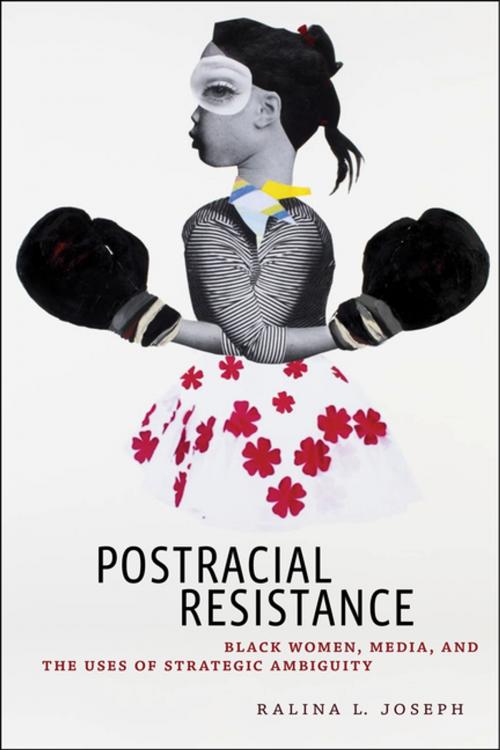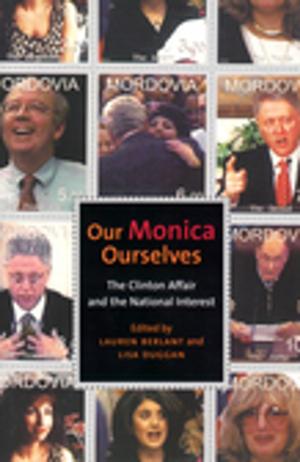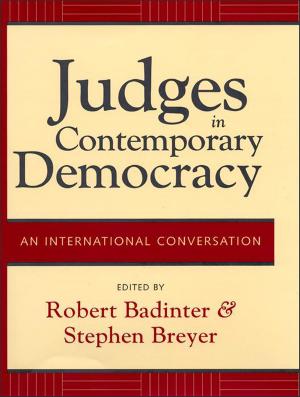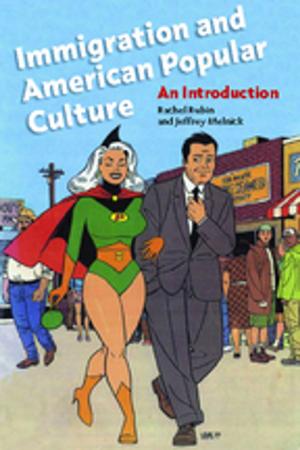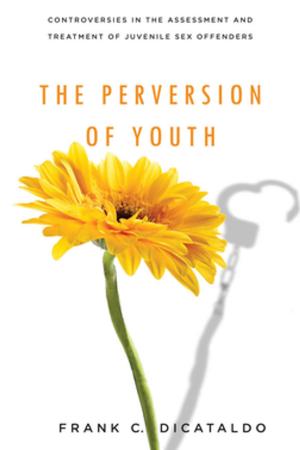Postracial Resistance
Black Women, Media, and the Uses of Strategic Ambiguity
Nonfiction, Social & Cultural Studies, Social Science, Cultural Studies, African-American Studies| Author: | Ralina L. Joseph | ISBN: | 9781479840366 |
| Publisher: | NYU Press | Publication: | October 9, 2018 |
| Imprint: | NYU Press | Language: | English |
| Author: | Ralina L. Joseph |
| ISBN: | 9781479840366 |
| Publisher: | NYU Press |
| Publication: | October 9, 2018 |
| Imprint: | NYU Press |
| Language: | English |
Winner, 2019 Outstanding Book Award, International Communication Association
How Black women in the spotlight negotiate the post-racial gaze of Hollywood and beyond
From Oprah Winfrey, Michelle Obama, and Shonda Rhimes to their audiences and the industry workers behind the scenes, Ralina L. Joseph considers the way that Black women are required to walk a tightrope. Do they call out racism only to face accusations of being called “racists”? Or respond to racism in code only to face accusations of selling out? Postracial Resistance explores how African American women celebrities, cultural producers, and audiences employ postracial discourse—the notion that race and race-based discrimination are over and no longer affect people’s everyday lives—to refute postracialism itself. In a world where they’re often written off as stereotypical “Angry Black Women,” Joseph offers that some Black women in media use “strategic ambiguity,” deploying the failures of post-racial discourse to name racism and thus resist it.
In Postracial Resistance, Joseph listens to and observes Black women as they perform and negotiate race in strategic ambiguity. Using three methods of media analysis—textual readings of the media's representation of these women; interviews with writers, producers, and studio executives; and audience ethnographies of young women viewers—Joseph maps the tensions and strategies that all Black women must engage to challenge the racialized sexism of everyday life, on- and off-screen.
Winner, 2019 Outstanding Book Award, International Communication Association
How Black women in the spotlight negotiate the post-racial gaze of Hollywood and beyond
From Oprah Winfrey, Michelle Obama, and Shonda Rhimes to their audiences and the industry workers behind the scenes, Ralina L. Joseph considers the way that Black women are required to walk a tightrope. Do they call out racism only to face accusations of being called “racists”? Or respond to racism in code only to face accusations of selling out? Postracial Resistance explores how African American women celebrities, cultural producers, and audiences employ postracial discourse—the notion that race and race-based discrimination are over and no longer affect people’s everyday lives—to refute postracialism itself. In a world where they’re often written off as stereotypical “Angry Black Women,” Joseph offers that some Black women in media use “strategic ambiguity,” deploying the failures of post-racial discourse to name racism and thus resist it.
In Postracial Resistance, Joseph listens to and observes Black women as they perform and negotiate race in strategic ambiguity. Using three methods of media analysis—textual readings of the media's representation of these women; interviews with writers, producers, and studio executives; and audience ethnographies of young women viewers—Joseph maps the tensions and strategies that all Black women must engage to challenge the racialized sexism of everyday life, on- and off-screen.
